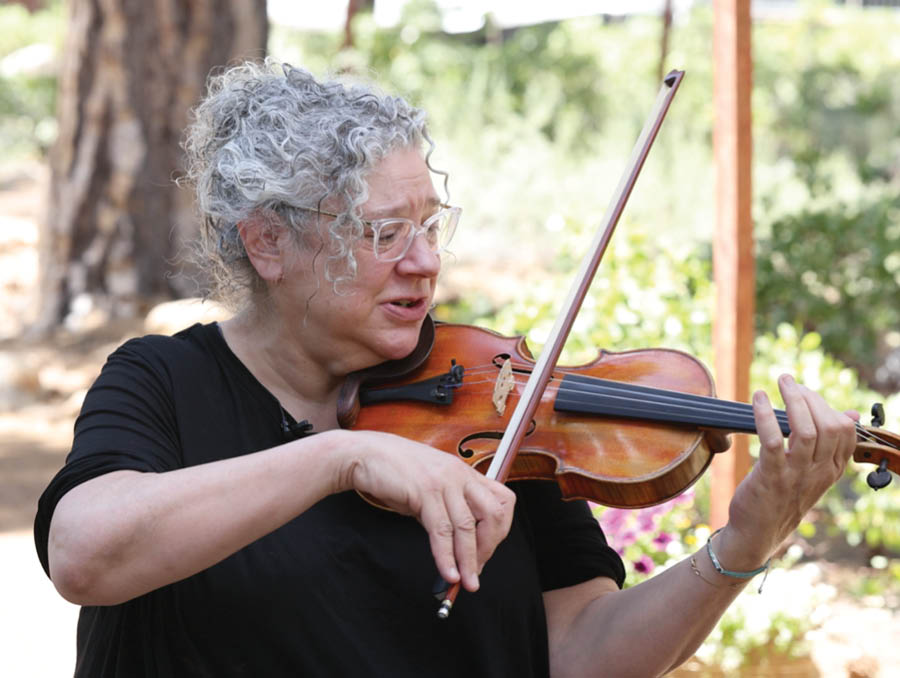Robert Gorrell was a man dedicated to the precision of good writing. His good work as a professor of English helped raise the University of Nevada, Reno's national profile. And, when needed, he filled so many roles so well during his time at the University that he became one of the institution's most important figures.
As an award-winning writer and English professor, Gorrell influenced thousands of students at Nevada and across the country with the publication of the "Modern English Handbook." Penned with Department of English colleague Charlton Laird, the "Modern English Handbook" was one of the most successful texts of its kind.
Gorrell's career was all the more memorable given that it almost ended before it fully bloomed.
During the 1950s, Gorrell and a group of University professors nearly lost their jobs in a tense duel with President Minard W. Stout over academic freedom. Gorrell and his colleagues were reinstated; Stout was later dismissed.
Gorrell, 97, a member of the Nevada Writer's Hall of Fame who continued to write books following his induction in 2001, died at his Reno home on Christmas Day.
Friends, students and colleagues of Bob Gorrell are encouraged to attend a campus memorial service from 2-4 p.m. on Sunday, Jan. 22, in the Ballroom of the Joe Crowley Student Union.
Gorrell's career at the University began in 1945. Over the next 35 years, he was an English professor, department chairperson in English, dean of the College of Arts and Science and vice president for academic affairs. Growing up in Indiana, he had been a newspaper writer and printer. Early in his career he was a Fulbright lecturer at universities in Sydney and Helsinki.
His honors included the National Council of Teachers of English Distinguished Lecturer; Nevada Humanities Committee Distinguished Scholar; the University's Distinguished Faculty Award. In 2001, he was inducted into the Nevada Writer's Hall of Fame.
For many years, Gorrell was best known for his enduring collaboration with fellow University English Professor Laird, "The Modern English Handbook," which first appeared in 1953.
Over the next several decades, "The Modern English Handbook" became one of the most successful English textbooks and was used on college campuses throughout the country.
"The Modern English Handbook" caught on because of its ability to unravel the mysteries of grammar, usage and effective rhetoric, doing so in uncomplicated, easy-to-digest lessons.
The writing was often wry, the lessons important.
What made a complete sentence? Easy, according to Gorrell and Laird: "A complete sentence says something about something."
Gorrell and Laird noted in the book's preface, "We have had innumerable helpful suggestions from our colleagues at the University of Nevada, especially from some of the teaching assistants. From several generations of students we have gained good as well as horrible examples, but, more important, we have had evidence that teaching English is not entirely futile."
The two English professors were even able to demonstrate why it was important for students to always do the right thing when they wrote, to never succumb to any weakness to appropriate another writer's writing. "Plagiarism," they noted with the right tone, which clearly suggested that they were talking about more than expository misdemeanors, "is the academic and literary equivalent of robbery, taking somebody else's property. ... If you are caught, you should expect punishment or contempt or both."
Gorrell's own writing often moved with a drumbeat's persistent efficiency. It could also be acrobatic, and full of color.
In a 1965 article in the academic journal, "College Composition and Communication," Gorrell infused the subject of rhetoric with life through the clever use of comparison.
"Rhetoric is very like an umbrella," he wrote in the essay, "Very Like a Whale. A Report on Rhetoric." "Under its expansive shade, more or less comfortably, cluster a variety of subjects - semantics, logic, usage, style."
Later, Gorrell switched his similes deftly and gave an insight into his own personality. Gorrell always enjoyed a good laugh, and found a hopeful contentment in his never-ending fascination with words and language: "Like any discipline exposed to sudden and unusual prosperity, rhetoric has inspired its share of nonsense in the course of the current enthusiasm. But it seems to me that progress outdistances the backsliding. I think that a new rhetoric is developing. Rhetoric is huge and often difficult to manage; it has its share of blubber, but it is also solid. Perhaps it is very like a whale."
As his academic career was winding down, Gorrell's writing life continued to take off.
From 1982-95, he penned the popular language and usage column, "Straight Talk," in the Reno Gazette-Journal. Coupled with his decades of teaching at the University, his advice on grammar and writing became so well-known that Nevada author Guy Clifton paid Gorrell a well-deserved compliment that was an offshoot of Clifton's popular book, "You Know You're A Nevadan If ..." Clifton noted that you knew you had attended the University of Nevada if ... Bob Gorrell taught you proper grammar.
In addition to his newspaper column, Gorrell produced several books, including: "Watch Your Language: Mother Tongue and Her Wayward Children"; "Murder at the Rose"; "What's in a Word: Etymological Gossip About Some English Words."
Sarah Hilliard of Duke University wrote in a review of "What's in a Word" in 2005 that Gorrell's love of language made the book "impressive" in explaining "the diversity of the English word stock as well as for the ingenuity of the human mind."
Where else, Hilliard noted, would a reader find a reference to Gelett Burgess - one of the leaders of the Bay Area's 1890s literary renaissance who created new words such as "blurb" or "bromide" or "goop" with the impulsiveness of Donald Trump taking on new wives - or the reasons behind why a daisy was called a "daisy" in the first place (the Anglo-Saxon compounding of "days's and "eye" to describe the flower's appearance, Gorrell, ever the English professor, explained).
In 2000 at age 86, Gorrell wrote his first novel, "Murder at the Rose," a murder mystery set in Elizabethan England.
Gorrell admitted the book was a departure for him, though he found it artistically invigorating. He joked that for the first time in his long career, he could simply write and not feel a compelling need to make a larger point about fine-tuning words, usage or grammar.
His voice, which was as husky as his sentence construction was clean, took on the softer tone of a first-timer's wonderment.
"There has been a lot of freedom," he said. "Fun can't begin to describe it. As a writer, I feel like I've grown a little bit. At my age, that's a wonderful feeling."
For Bob Gorrell, writing was very like his life. It was always practiced well ... always displayed with a memorable distinction, a noteworthiness reinforced by his passion for life, that won't soon be forgotten.











